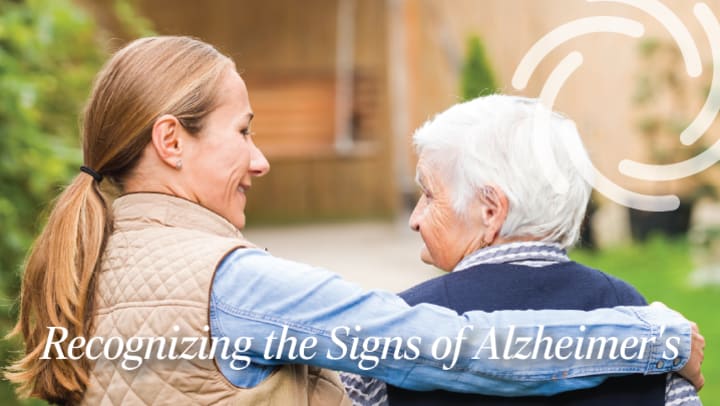Alzheimer’s Disease affects millions of families across the United States and around the world. While it is most common in older adults, the signs can appear gradually—often leaving loved ones unsure about what’s normal aging and what signals something more serious. Understanding the symptoms, knowing when to seek help, and being aware of the resources available can make all the difference in ensuring your loved one receives the right care and support.
What Is Alzheimer’s Disease?
Alzheimer’s disease is the most common form of dementia, accounting for up to 60–80% of dementia cases. It is a progressive neurological condition that affects memory, thinking, and behavior. Over time, it interferes with daily life and eventually leads to the need for round-the-clock care.
While the exact cause of Alzheimer’s is still being studied, it is linked to abnormal protein deposits in the brain—amyloid plaques and tau tangles—that disrupt communication between nerve cells. As the disease advances, it shrinks brain tissue, impairing cognitive and physical functions.
Alzheimer’s is not a normal part of aging, though age is the biggest risk factor. Genetics, lifestyle, and other health conditions such as diabetes, cardiovascular disease, or a history of traumatic brain injury may also increase the risk.
The Signs and Symptoms of Alzheimer’s Disease
Alzheimer’s disease often begins subtly. Families may first notice forgetfulness or small lapses in judgment, which are easy to mistake for typical age-related changes. Over time, however, symptoms become more pronounced and disruptive.
Common early signs include:
-
Memory loss that disrupts daily life. Frequently forgetting recently learned information, important dates, or events and increasingly relying on reminders.
-
Difficulty with problem-solving or planning. Struggling to follow familiar recipes, manage bills, or keep track of appointments.
-
Confusion with time or place. Losing track of seasons, dates, or becoming disoriented in familiar environments.
-
Challenges with language. Trouble following a conversation, repeating themselves, or using the wrong words.
-
Poor judgment. Making risky financial decisions or neglecting personal hygiene.
-
Withdrawal from social activities. Pulling back from hobbies, work, or social engagements due to difficulty keeping up.
-
Changes in mood and personality. Becoming anxious, suspicious, depressed, or easily upset, especially outside of their comfort zone.
As the disease progresses, symptoms intensify. Individuals may wander, require assistance with personal care, and lose the ability to recognize close family members.
When to Get Help for Alzheimer’s Disease
Occasional forgetfulness—like misplacing keys or missing a monthly payment—can be normal with aging. However, when memory lapses and behavior changes start interfering with daily living, it’s important to seek medical advice.
A primary care doctor may recommend a neurologist, geriatrician, or memory specialist for further evaluation. Diagnostic steps may include:
-
Reviewing medical history and medications.
-
Cognitive and memory testing.
-
Brain imaging scans such as MRI or CT.
-
Blood tests to rule out other causes like vitamin deficiencies or thyroid issues.
Getting help early has many benefits. A diagnosis allows families to plan for the future, access treatments that may temporarily improve symptoms, and explore support resources. Early intervention also reduces stress by providing clarity and guidance rather than uncertainty.
The Benefits of Memory Care for Alzheimer’s Disease
For families, one of the biggest challenges is balancing the desire to care for a loved one at home with the increasing complexity of Alzheimer’s disease. Memory care communities are designed specifically for individuals living with dementia, providing a safe, structured, and compassionate environment.
Key benefits of memory care include:
-
Specialized environments. Secure layouts reduce confusion and wandering while promoting independence.
-
Expert caregivers. Staff are trained in dementia care, communication techniques, and managing behavioral changes.
-
Daily engagement. Programs tailored to cognitive abilities help maintain skills, provide meaningful activity, and reduce isolation.
-
Consistent routines. Predictable schedules offer comfort and minimize anxiety.
-
24/7 support. Families gain peace of mind knowing their loved one is safe and cared for at all times.
Memory care communities not only address the needs of residents but also serve as a lifeline for families, alleviating the emotional and physical burden of providing round-the-clock care at home.
Support for Families of a Loved One With Alzheimer’s Disease
Alzheimer’s doesn’t just affect the person diagnosed—it impacts the entire family. Watching a loved one change can be heartbreaking, and caregiving often brings significant stress. Families may feel guilt, frustration, or grief as they adjust to new realities.
Ways families can find support include:
-
Education and resources. Organizations like the Alzheimer’s Association offer classes, online materials, and local support networks.
-
Support groups. Connecting with others who understand the challenges can reduce isolation and provide coping strategies.
-
Respite care. Short-term stays in senior living communities or in-home services give caregivers much-needed breaks.
-
Professional counseling. Therapy can help family members process emotions and build resilience.
-
Involvement in care planning. Staying engaged with the care team ensures family voices are heard and valued.
Taking care of yourself while caring for a loved one is not selfish—it’s essential. Strong family support ultimately benefits the individual with Alzheimer’s by ensuring care is sustainable over time.
Alzheimer’s disease can feel overwhelming, but recognizing the early signs and knowing when to seek help provides a sense of direction. Memory care communities, medical professionals, and family support networks all play crucial roles in navigating this journey.
Most importantly, families are not alone. With the right resources and compassionate care, individuals with Alzheimer’s can continue to experience moments of joy, connection, and dignity. And families can find strength, reassurance, and hope in knowing their loved one is supported every step of the way.





